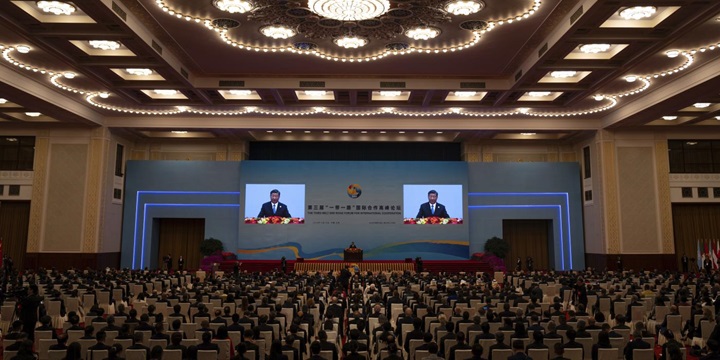
On the eve of American and Chinese presidents Joseph Biden and Xi Jinping meeting in San Francisco on November 14, Beijing may feel better than 24 months ago, when its main and sole objective was to take on China. As reported by David Goldman,[1] Beijing may feel it holds a few aces in the game.
The US is distracted by two wars in Ukraine and Israel. While Russia failed to win, it reached a stalemate that could last long or force the other side to a face-saving compromise. After the October 7 Hamas attack, the US is supporting Israel. The war could be short, but establishing a durable peace could take time – a further distraction from China.
The technology blockade has proven difficult, and the US doesn’t want to slip into an open war in the South China Sea.
These could all be short-term advantages, giving Beijing precious time to reconsider its options, but they might not change the overall outlook. Conversely, they all could incense the US and its allies, as many in the West suspect and whisper that China is the mastermind behind the wars in Ukraine and Israel and thus believe that they have to get back at China with vengeance after the conflicts have been solved.
If so, although Beijing may have gained time, time may not be on its side, especially considering the broad Chinese economic outlook.
A recent article in the South China Morning Post, a newspaper close to Beijing, reported: “Since 2018, Beijing has stepped up its efforts to curb the unchecked growth of informal backchannels of borrowing – commonly known as hidden debt – but likely to its dismay, Ministry of Finance audits show that such debt has continued to rise.”[2]
Michael Pettis remarked, “While there is nothing wrong (and much that is right) with going after unethical financial behavior, it would be a mistake to think that this will solve the problem of the surging debt burden.”
He then underlines a crucial point at the heart of China’s economic problems: “As long as Beijing set GDP growth targets that exceeded what the real economy could deliver, there was no way to achieve these targets without shifting economic activity towards nonproductive sectors.”[3]
If so, China’s economic problem is Beijing’s economic planning. It worked when the Chinese economy was puny and headless, but it created problems when it was big and needed to find its direction. Thus, what would the solution be now? Drop Beijing’s meddling in the market?
The present debt problems started as local governments, without significant tax revenues, were sitting on the nation’s most valuable asset, land, in the middle of the largest real estate boom in history. Now, this has ended, and the whole sector is deflating.
Plus, people are rising to the middle class without any safety net because they are just too aware of past poverty, saving money and not spending it. Now, the state has become aware of the problem, but it will need a lot of resources to fix a welfare state, provide enough security to the middle class to spend more, and lift more people out of relative poverty. However, the resources are not there; finding them will take much time and restructuring.
Meanwhile, foreign trade is contracting for various reasons, and it may carry on doing so soon, further dwindling resources.
To fix Chinese government meddling in the economy would require a major rethinking that would impact China’s economic and political structure. It can be done, but it would be painful and could take a long time.
In the meantime, short of massive cash infusions, growth is stalling, unemployment is spiking, and stagflation may be setting in.
The underlying matter is the waning internal and international confidence about China’s future outlook. It is unclear whether Beijing has thought thoroughly about regaining that confidence and what it should pay for it. In any case, it is unlikely that China will have enough steam to turn the situation around without a boost of confidence.
Indeed, China is not alone in having troubles; the US has its own issues, and they are not much smaller. Still, the US problems don’t erase the Chinese troubles. They are separate issues. The subject really is, since Beijing gained some time, how will it use it?
Already in 2001, the US and China were on a collision course; then 9/11 granted Beijing a decade of respite. In that decade, Beijing did little to address the radical political and economic troubles that led to that collision course. It squandered the time, making many problems worse.
Now, Beijing will hardly have a decade of reprieve. It could be just a few months or a few short years. It can’t afford to waste it again. It should think long, complex, and with a lot of realistic imagination, how to turn things around.
[1] https://asiatimes.com/2023/11/xi-holds-four-aces-as-he-meets-biden/
[2] https://www.scmp.com/economy/china-economy/article/3240666/china-debt-crisis-8-cases-financial-misconduct-flagged-beijing-names-and-shames-regions-banks?utm_source=twitter&utm_campaign=3240666&utm_medium=share_widget
[3] https://x.com/michaelxpettis/status/1723333835780169795?s=20





